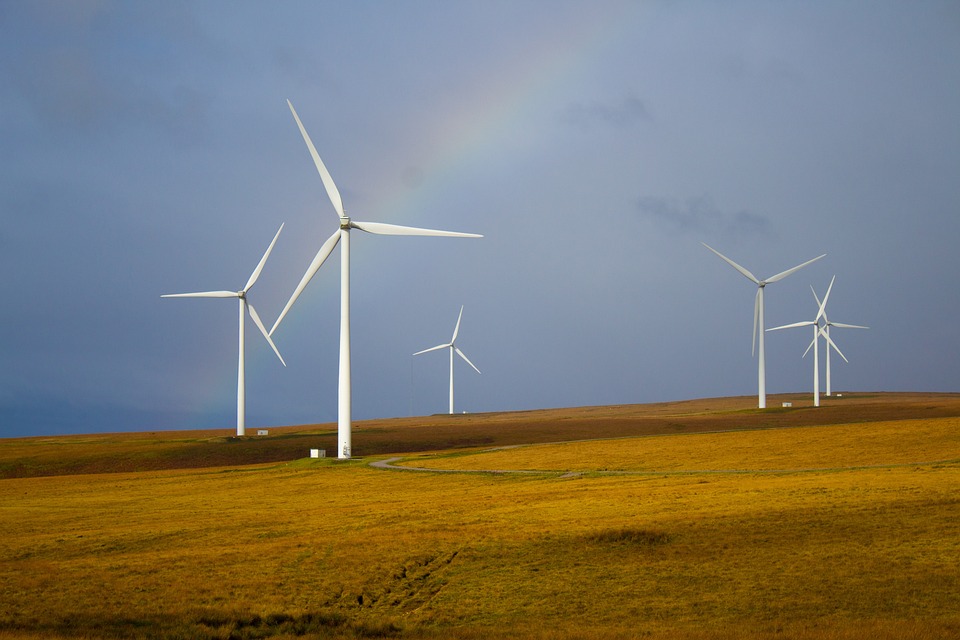Revolutionizing Energy Distribution: The Future of Grid Solutions
The way we generate, transmit, and consume energy is undergoing a significant transformation. The traditional grid infrastructure is being revamped to accommodate the increasing demand for clean energy, decentralized power generation, and smart grid technologies. In this article, we will explore the future of grid solutions and how they are revolutionizing energy distribution.
The Challenges of the Traditional Grid
The traditional grid has been in place for over a century, and while it has served us well, it is facing several challenges. One of the main issues is the increasing demand for energy, which is putting a strain on the grid’s infrastructure. The traditional grid is also prone to power outages, which can have significant economic and social impacts.
Capacity Constraints
The traditional grid is designed to handle a certain amount of energy demand, but as the demand continues to grow, it is becoming increasingly difficult to meet the needs of consumers. This is particularly true in areas with high population growth and economic development.
Reliability and Resilience
The traditional grid is also vulnerable to power outages, which can be caused by a variety of factors, including weather events, equipment failures, and human error. These outages can have significant economic and social impacts, and they can also damage the reputation of utilities and grid operators.
The Future of Grid Solutions
The future of grid solutions is focused on creating a more efficient, reliable, and resilient energy distribution system. This will involve the integration of new technologies, such as smart grid systems, renewable energy sources, and energy storage systems.
Smart Grids
Smart grids are designed to manage energy distribution in real-time, using advanced technologies such as sensors, automation, and data analytics. This allows for more efficient energy distribution, reduced energy losses, and improved grid reliability.
Renewable Energy Sources
Renewable energy sources, such as solar and wind power, are becoming increasingly important as the world transitions to a low-carbon economy. These sources of energy can be integrated into the grid using advanced technologies such as energy storage systems and smart inverters.
Energy Storage Systems
Energy storage systems, such as batteries and other technologies, are becoming increasingly important as the world transitions to a low-carbon economy. These systems can help to stabilize the grid, reduce energy losses, and provide backup power during outages.
The Benefits of Grid Solutions
The future of grid solutions offers a number of benefits, including:
Improved Efficiency
Grid solutions can help to reduce energy losses, improve energy distribution, and increase the overall efficiency of the energy system.
Increased Reliability
Grid solutions can help to improve grid reliability, reduce the risk of power outages, and provide backup power during outages.
Reduced Emissions
Grid solutions can help to reduce greenhouse gas emissions, improve air quality, and support the transition to a low-carbon economy.
Conclusion
In conclusion, the future of grid solutions is focused on creating a more efficient, reliable, and resilient energy distribution system. This will involve the integration of new technologies, such as smart grid systems, renewable energy sources, and energy storage systems. The benefits of grid solutions include improved efficiency, increased reliability, and reduced emissions. As the world continues to transition to a low-carbon economy, grid solutions will play a critical role in supporting this transition.
FAQs
Q: What is a smart grid?
A: A smart grid is a grid that uses advanced technologies, such as sensors, automation, and data analytics, to manage energy distribution in real-time.
Q: What are the benefits of a smart grid?
A: The benefits of a smart grid include improved efficiency, increased reliability, and reduced energy losses.
Q: What is energy storage?
A: Energy storage refers to the storage of energy for later use. This can be achieved through a variety of technologies, including batteries and other systems.
Q: What are the benefits of energy storage?
A: The benefits of energy storage include improved grid reliability, reduced energy losses, and increased flexibility in energy distribution.
Q: What is the role of renewable energy sources in the future of grid solutions?
A: Renewable energy sources, such as solar and wind power, will play a critical role in the future of grid solutions. These sources of energy can be integrated into the grid using advanced technologies such as energy storage systems and smart inverters.
Q: What is the timeline for the implementation of grid solutions?
A: The timeline for the implementation of grid solutions will vary depending on the specific technologies and infrastructure involved. However, many experts believe that the transition to a smart grid will take place over the next decade or two.




.png?w=150&resize=150,150&ssl=1)

.png?w=150&resize=150,150&ssl=1)
.png?w=150&resize=150,150&ssl=1)